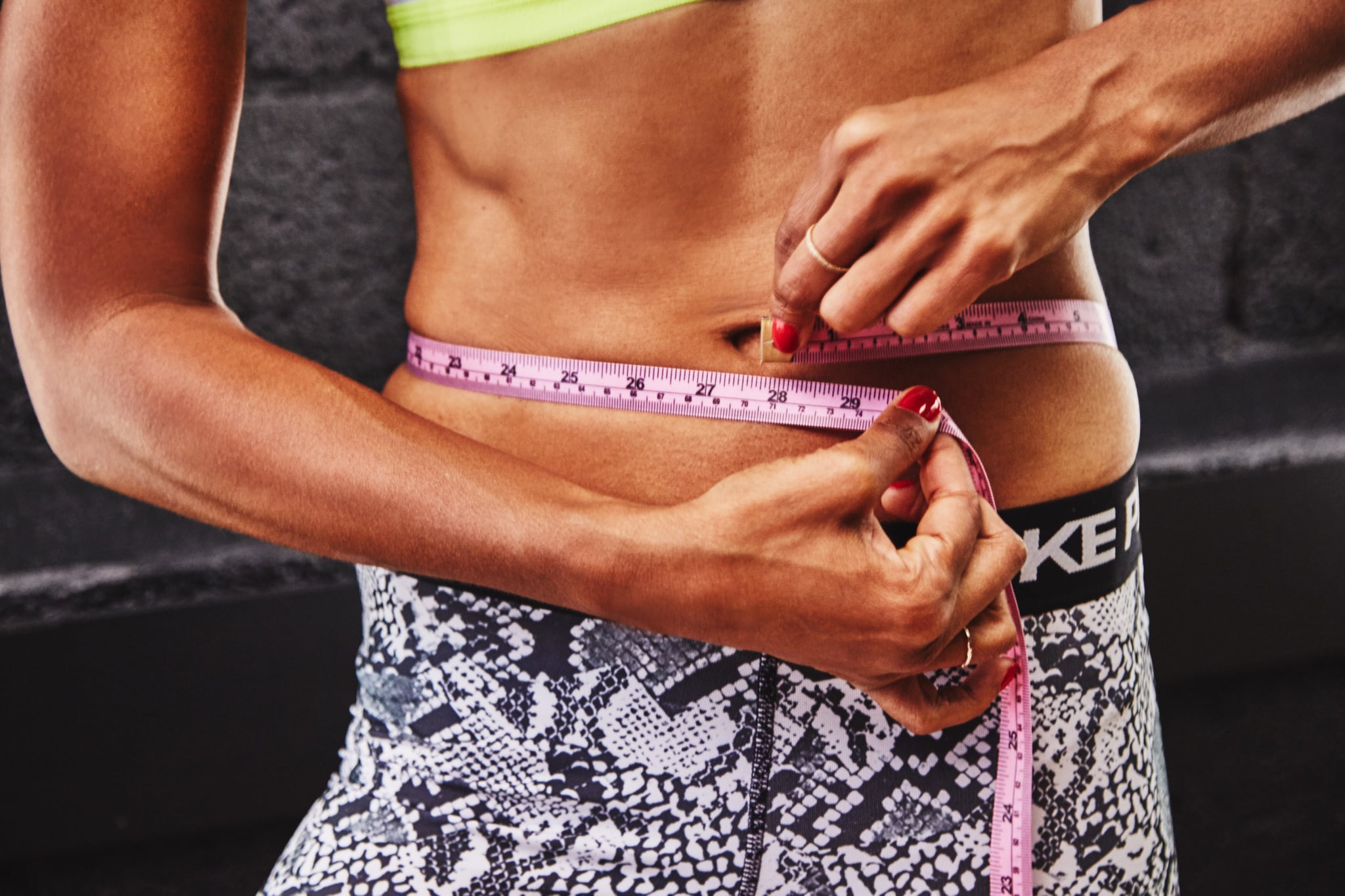

If a leaner figure is what you're after, it might be time to start focusing on turning your body fat into lean muscle mass. Body fat and body mass index (BMI) are not one in the same, though. BMI is a measurement of body fat derived from a calculation based on one's height and weight, and according to the Centers for Disease Control and Prevention, "BMI does not measure body fat directly."
POPSUGAR spoke with registered dietitian Abby Langer of Abby Langer Nutrition, and Stephen Cheuk, personal trainer and founder of S10 training in NYC - focusing on body composition, strength and performance - on the best practices to lower your body fat percentage.
What Exactly Is Body Fat and Why Do I Need It?
According to Langer, you need body fat to protect your organs, cushion your joints, and produce hormones. Lowering your body fat percentage can lead to a leaner figure, but Langer stresses that if your body fat percentage becomes too low, it can be dangerous in terms of your immunity and body processes. Langer shares that the average woman's body fat should be anywhere between 21 and 33 percent. This may vary, as female athletes tend to fall in the 14 to 20 percent range, according to the American Council on Exercise.
What Style of Training Should I Do?
There's no one-size-fits all style of training if your goal is to lower your body fat percentage. Cheuk explains that "this really depends on that person's body type and where they are body-fat wise. For instance, if someone has a higher fat and weight ratio to muscle then strength training with hypertrophy focus will work better for lowering their body fat. If someone is overweight and high in body fat, but actually has a lot of muscle mass for their body, conditioning-based training generally responds well in the beginning."
How Often Do I Need to Train?
In order to see results, you're going to want to up the ante in the workout department. Cheuk advises that someone fairly new to training should train two to three times a week in the gym, whereas someone who has experience training should be training at least five days a week. He also emphasizes moving in some way every day, especially if you're just starting out. Langer suggests taking up resistance training in order to retain as much muscle as possible.
What Exactly Should I Be Eating?
Nutrition is key to changing your body composition, which is why Cheuk suggests eating lean proteins, good fats, and a variety of vegetables, avoiding processed foods, sugars, and alcohol. Langer explains that there is no specific diet to lose body fat, but restricting calories will burn fat and some muscle in the process. If you're considering cutting out carbohydrates, Cheuk says ultimately that depends on your body type and insulin sensitivity, as some people need them to get leaner while others do better without them. If the goal is to lower body fat percentage, that doesn't mean you have to cut out the good fats.
"I never recommend clients going low-fat, but I do recommend sticking to healthy fats" Chuek told POPSUGAR. He also shared this tip: the more you can prep your food at home, the better.
How Long Until I See Results?
There are no quick gimmicks when it comes to lowering your body fat percentage, and according to Cheuk, it takes one week to lose roughly 0.8 percent of body fat. Before you make any drastic changes of your own in order to lower your body fat percentage, be sure to speak with your doctor.


0 comments :
Post a Comment